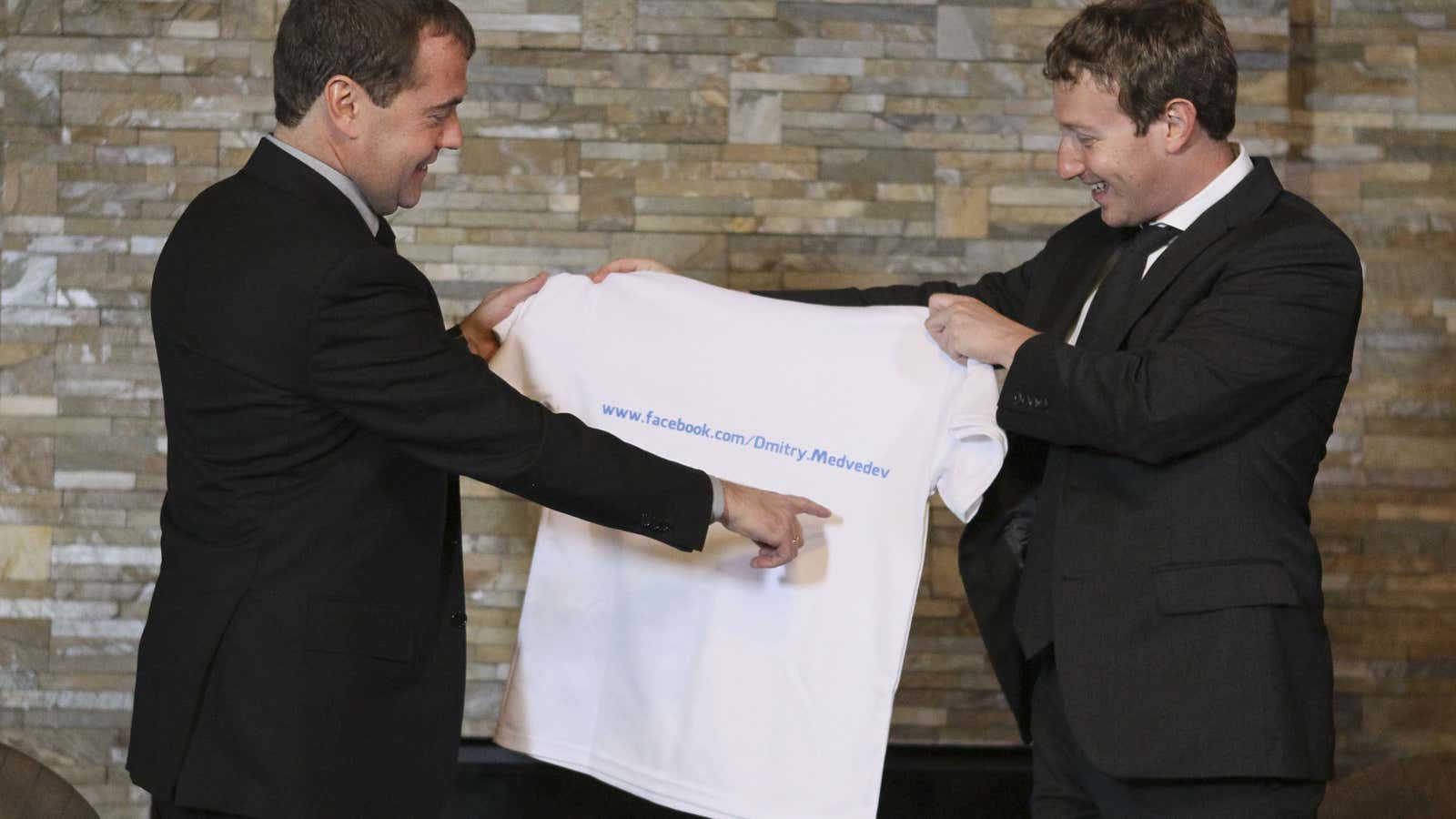The public square that the internet and social media offers Russian activists may soon be compromised. The Moscow Times reported Friday that the Kremlin’s telecommunications regulator, Roskomnadzor, this week notified Google, Facebook, and Twitter that they would need to register as “organizers of information distribution” under the country’s so-called blogger law.
Under the law, which went into effect in July, any websites and online services classified as such are required to store Russian users’ information on servers within the country. This would subject these websites, who do not currently operate data centers in Russia, to Russian legal oversight and monitoring. This is significant because with data stored locally, Russia’s security services could more easily intercept users’ data.
In June, Russia’s Federal Security Service announced new requirements for local data centers. Under the requirements, companies have to use special cryptographic measures approved by the agency, essentially allowing the agency to decrypt any information stored in their facilities.
Additionally, under the law, bloggers who receive more than 3,000 daily readers are obligated to register themselves as “mass media” placing them under the umbrella of government oversight. This puts bloggers under the same restrictions—which include a ban on slander and obscene language, amongst other things—as those on TV and print media. High-profile Russian political activists, who are often also prominent social media personalities in Russia, would be an obvious target under this designation.
Russia’s Izvestia newspaper reported Friday that Maxim Ksenzov, Roskomnadzor’s deputy chief, said the agency would “force” Google, Facebook, and Twitter to comply with the order, and that if they don’t, “they will be subjected to administrative sanctions.” The companies have until the end of this year to register with Roskomnadzor.
With its 7.8 million users, Facebook is not the biggest social media platform in Russia. Vkontakte (VK), its Russian equivalent, is the largest, with 49 million Russian users, according to Alexa, a social media analytics firm. In April, VK’s founder and CEO, Pavel Durov, was abruptly fired and the company was taken over by Igor Sechin and Alisher Usmanov, two Russian tycoons who are said to be close allies of President Vladimir Putin.
Prior to the takeover, VK was known for its relatively lax policies toward digital piracy and Durov’s fierce belief in free speech online. Last year, Durov famously offered Edward Snowden, the NSA whistleblower who resides in Russia on a three-year residency permit, a programmer position at VK.




